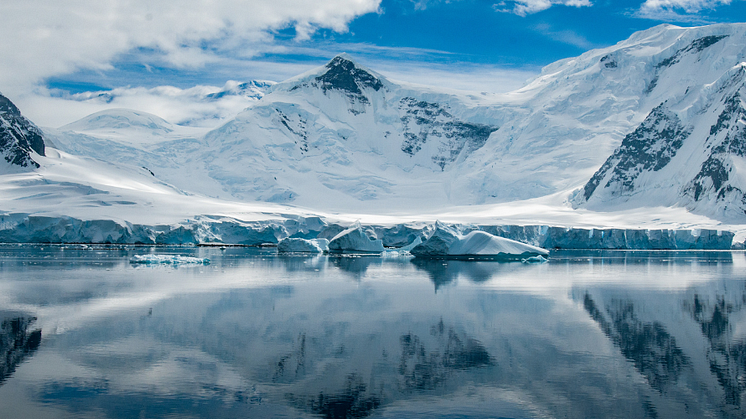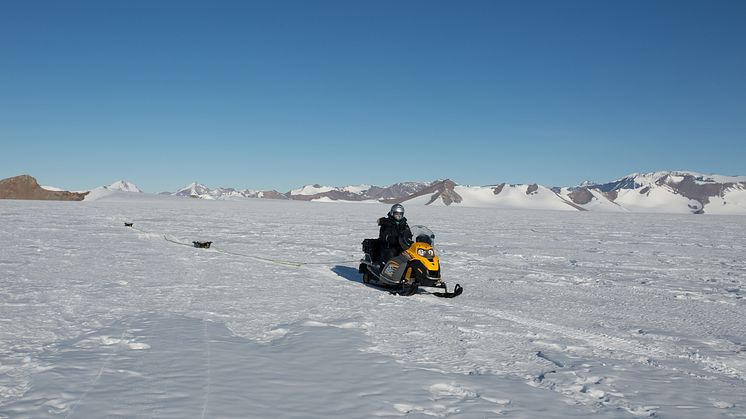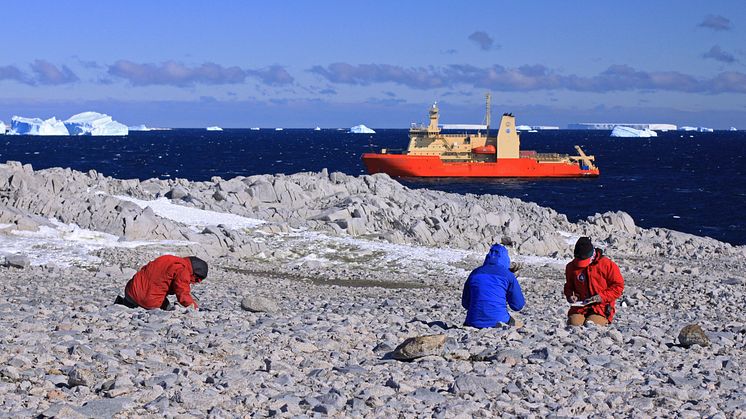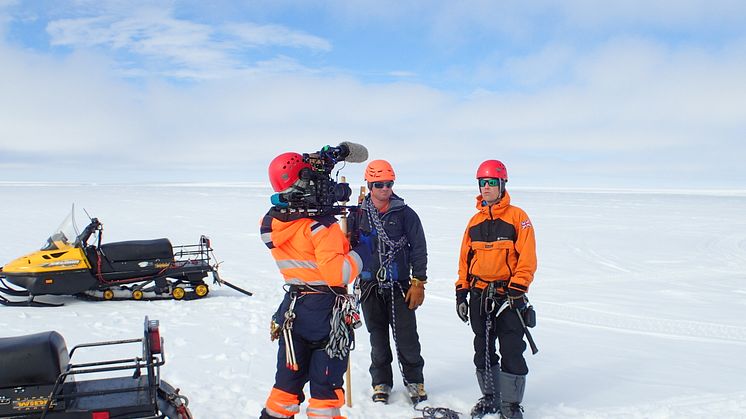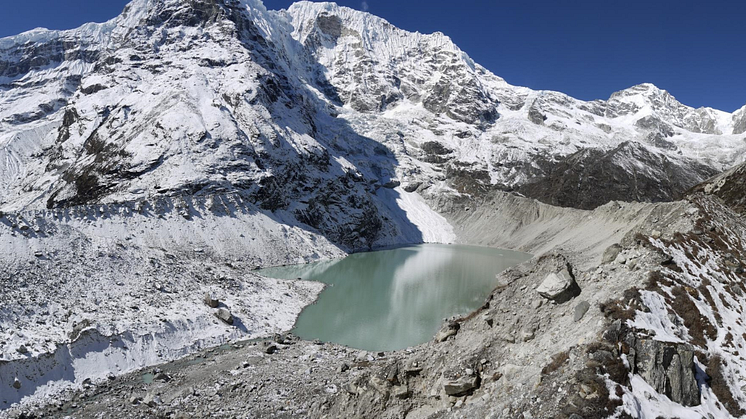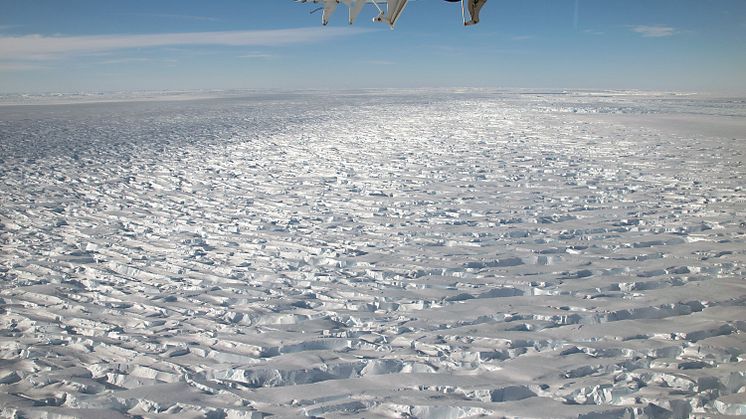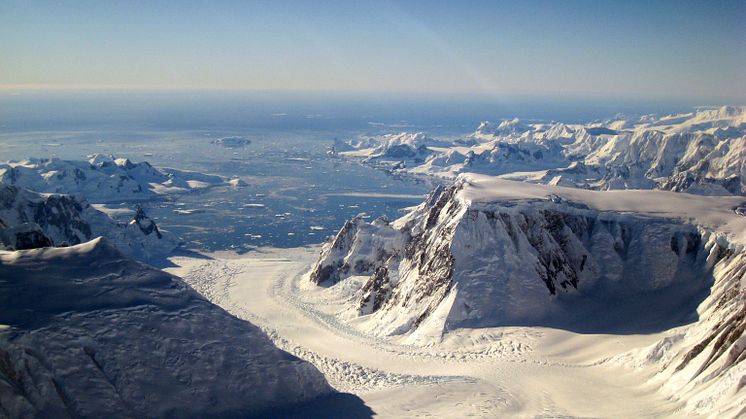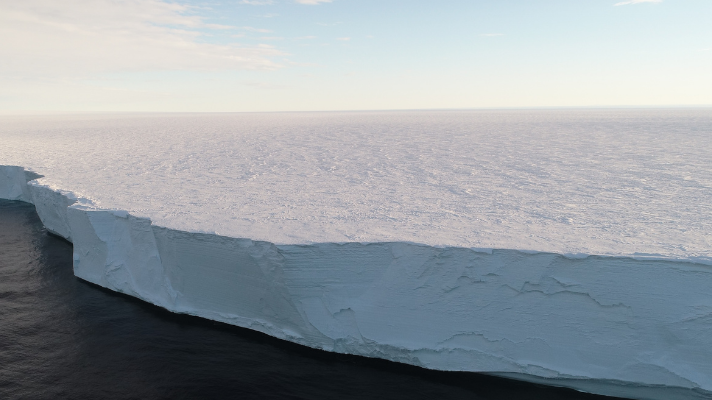
Press release -
Evidence of Antarctic glacier’s tipping point confirmed for first time
Researchers have confirmed for the first time that Pine Island Glacier in West Antarctica could cross tipping points, leading to a rapid and irreversible retreat which would have significant consequences for global sea level.
Pine Island Glacier is a region of fast-flowing ice draining an area of West Antarctica approximately two thirds the size of the UK. The glacier is a particular cause for concern as it is losing more ice than any other glacier in Antarctica.
Currently, Pine Island Glacier together with its neighbouring Thwaites glacier are responsible for about 10% of the ongoing increase in global sea level.
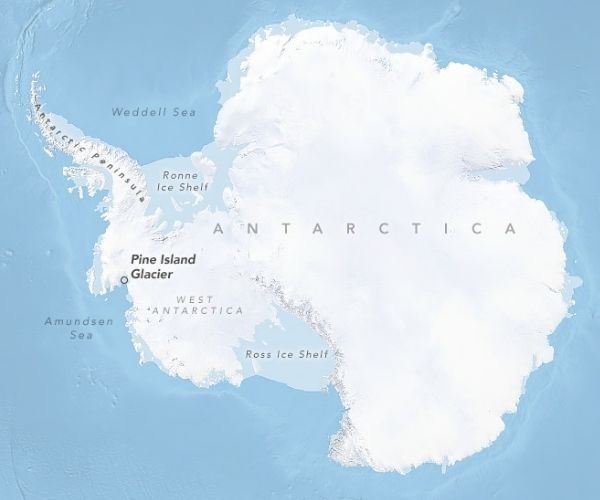
Scientists have argued for some time that this region of Antarctica could reach a tipping point and undergo an irreversible retreat from which it could not recover. Such a retreat, once started, could lead to the collapse of the entire West Antarctic Ice Sheet, which contains enough ice to raise global sea level by over three metres.
While the general possibility of such a tipping point within ice sheets has been raised before, showing that Pine Island Glacier has the potential to enter unstable retreat is a very different question.
Now, researchers from Northumbria University have shown, for the first time, that this is indeed the case.
Their findings are published in leading journal, The Cryosphere.
Using a state-of-the-art ice flow model developed by Northumbria’s glaciology research group, the team have developed methods that allow tipping points within ice sheets to be identified.
For Pine Island Glacier, their study shows that the glacier has at least three distinct tipping points. The third and final event, triggered by ocean temperatures increasing by 1.2C, leads to an irreversible retreat of the entire glacier.
The researchers say that long-term warming and shoaling trends in Circumpolar Deep Water, in combination with changing wind patterns in the Amundsen Sea, could expose Pine Island Glacier’s ice shelf to warmer waters for longer periods of time, making temperature changes of this magnitude increasingly likely.
The lead author of the study, Dr Sebastian Rosier, is a Vice-Chancellor’s Research Fellow in Northumbria’s Department of Geography and Environmental Sciences. He specialises in the modelling processes controlling ice flow in Antarctica with the goal of understanding how the continent will contribute to future sea level rise.

Dr Rosier is a member of the University’s glaciology research group, led by Professor Hilmar Gudmundsson, which is currently working on a major £4million study to investigate if climate change will drive the Antarctic Ice Sheet towards a tipping point.
Dr Rosier explained: “The potential for this region to cross a tipping point has been raised in the past, but our study is the first to confirm that Pine Island Glacier does indeed cross these critical thresholds.
“Many different computer simulations around the world are attempting to quantify how a changing climate could affect the West Antarctic Ice Sheet but identifying whether a period of retreat in these models is a tipping point is challenging.
“However, it is a crucial question and the methodology we use in this new study makes it much easier to identify potential future tipping points.”
Hilmar Gudmundsson, Professor of Glaciology and Extreme Environments worked with Dr Rosier on the study. He added: “The possibility of Pine Island Glacier entering an unstable retreat has been raised before but this is the first time that this possibility is rigorously established and quantified.
“This is a major forward step in our understanding of the dynamics of this area and I’m thrilled that we have now been able to finally provide firm answers to this important question.
“But the findings of this study also concern me. Should the glacier enter unstable irreversible retreat, the impact on sea level could be measured in metres, and as this study shows, once the retreat starts it might be impossible to halt it.”
The paper, The tipping points and early warning indicators for Pine island Glacier, West Antarctica, is now available to view in The Cryosphere.
Northumbria is fast becoming the UK’s leading university for research into Antarctic and extreme environments.
As well as the £4m tipping points study, known as TiPPACCs, Northumbria is also the only UK university to play a part in two projects in the £20m International Thwaites Glacier Collaboration – the largest joint project undertaken by the UK and USA in Antarctica for more than 70 years - where Northumbria is leading the PROPHET and GHC projects. This particular study was funded through both TiPPACCs and PROPHET.
Topics
Categories
Northumbria is a research-rich, business-focused, professional university with a global reputation for academic excellence. Find out more about us at www.northumbria.ac.uk --- Please contact our Media and Communications team at media.communications@northumbria.ac.uk with any media enquiries or interview requests ---










